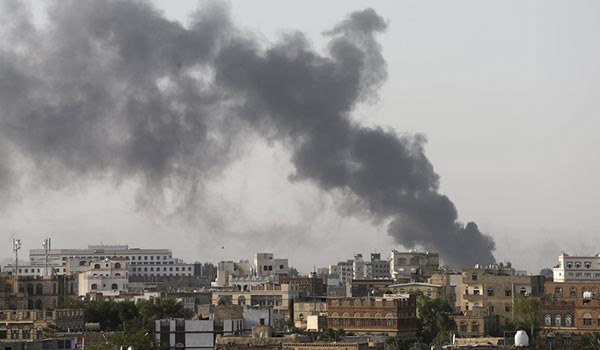
RNA - The coalition’s “plans to storm Yemen’s biggest port of Hudaydah give rise to serious concerns,” Russian Foreign Ministry spokeswoman Maria Zakharova said in a statement published on the ministry’s official website, RT reported.
She added that battles in this area “would not only inevitably lead to a mass exodus of the [local] population but would also de facto cut the [Yemeni] capital of Sanaa from… food and humanitarian aid supplies.”
Zakharova called the humanitarian situation in Yemen “catastrophic,” citing the UN who earlier said that the Yemeni people “face the specter of famine” while their country suffers from “the largest humanitarian crisis in the world.”
The Foreign Ministry spokeswoman condemned a coalition airstrike on an Al Hudaydah market, in which more than 20 civilians were killed. She also said that the coalition forces’ latest offensive on the western coastal town of Mokha had led to more than 48,000 local residents fleeing their homes.
In late February, the UN reported that around 10,000 people have been killed in the country since Saudi Arabia intervened, with 7 million people close to starvation.
According to the World Health Organization, more than 7,400 people have been killed in the conflict, with around 1,400 of them being children.
Riyadh and its allies have been accused of war crimes by humanitarian groups, after airstrikes hit residential areas and public gatherings on numerous occasions.
Activists from Human Rights Watch (HRW) “were able to document 61 apparent unlawful airstrikes, all conducted by the coalition, some of which may amount indeed to war crimes and that have killed nearly 900 civilians and have hit civilian areas, including markets, schools, hospitals and private homes,” Ahmed Benchemsi, communications and advocacy director at HRW’s Middle East & North Africa division, told RT on Sunday.
847/940